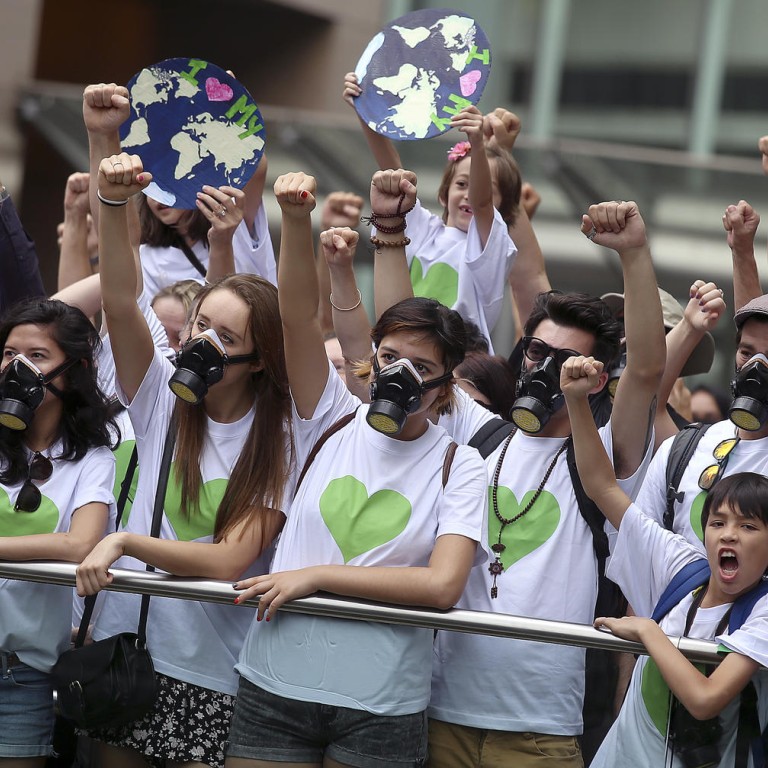
Study offers an energy saver for policymakers
With the right policy tools to lower growth in power demand, Hong Kong could reach its emission targets without resorting to a major shake-up of its energy mix, a recent study has found.
With the right policy tools to lower growth in power demand, Hong Kong could reach its emission targets without resorting to a major shake-up of its energy mix, a recent study has found.
The study was based on a decision-making model developed by Dr Maria Francesch-Huidobro, of City University's public policy department, and Thomas Tang from the AECOM consultancy.
Francesch-Huidobro said there was a vacuum when it came to climate strategy in the city, and her model could help fill it. "We do not have a [climate] policy now and we are offering the government an assessment and a strategy, free of charge," she said.
She added that the government had made little progress in formulating a strategy on climate change since the Fukushima nuclear disaster in 2011, and catching up would require political will from its leaders.
Based on a European climate-change database, the model can assess the emissions reduction potential of policy measures, Francesch-Huidobro said.
In the study, two sets of proposed measures were tested - from the government and WWF-Arup. It found the WWF-Arup measures would beat the targeted 33 per cent cut to 2005 emission levels, as set out by the government, by 4 percentage points.
The government measures focused on power supply, including changing the fuel mix. The WWF-Arup proposals put more emphasis on managing demand, such as energy codes for buildings, energy-saving appliances and green transport. Policy tools were also found to make a difference - from regulation and tax breaks to public education.
Francesch-Huidobro said measures to manage demand were as effective as adjusting the fuel mix, but they needed concrete policy support.
The Environment Bureau received more than 70,000 submissions in its three-month public consultation earlier this year on fuel mix proposals for the city's power generation. One of those was to import more power from the mainland to meet the city's emission targets.
Tang, who developed the model with Francesch-Huidobro, admitted that mandatory measures could be costly, but he believed more regulations on green buildings should be introduced.
Secretary for the Environment Wong Kam-sing has said that his bureau would put out a blueprint for managing demand.
Meanwhile, dozens of local activists and green campaigners took part in a rally yesterday in support of the global fight against climate change, at Exchange Square in Central.
The rally was one of dozens staged around the world ahead of tomorrow's United Nations Climate Summit in New York.
Activists are pushing for world leaders to take decisive action on a climate agreement, and calling for economies to transition to 100 per cent clean energy to stave off "climate catastrophe".
